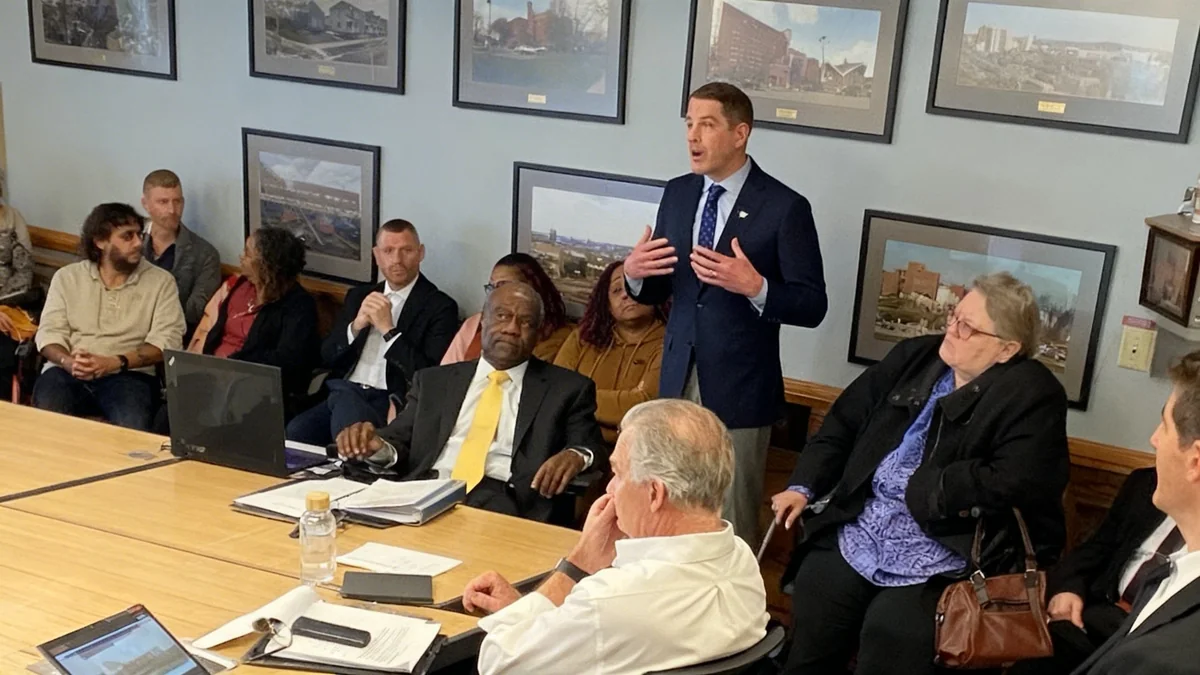A group of Egypt's most prominent real estate developers has presented a detailed set of recommendations to the government. The proposals are designed to address current market instability and establish a more predictable framework for future growth and investment in the sector.
During a press conference last week, industry leaders outlined a strategic plan focusing on improved regulation, financial market development, and a more collaborative relationship between the private sector and state authorities. The reforms aim to enhance transparency and efficiency across the industry.
Key Takeaways
- Developers are calling for a permanent dialogue platform with the government to address sector challenges.
- A key demand is the fast-tracking of the long-awaited Developers’ Union Law to regulate the market.
- Proposals include activating a real estate exchange and removing barriers for investment funds.
- Streamlining approvals through measures like "golden licenses" for real estate is also suggested.
- Financial support for contractors and reforms to mortgage lending are considered crucial for stability.
A Call for Collaborative Governance
At the heart of the proposal is the establishment of a structured and continuous dialogue between government bodies and private sector developers. Industry representatives stated that such a platform is essential for creating cohesive and effective policies.
This collaborative body would tackle critical issues like market regulation, the mechanisms for land sales, and the process for land allocation. Developers argue that a more transparent and fair system would improve operational efficiency and ensure the long-term health of the real estate market.
The group stressed the importance of protecting the rights of both the state and developers in all future policymaking. A significant concern raised was the potential for new regulations to be applied retroactively, which they warned could undermine investor confidence.
Legislative and Regulatory Overhaul
A central pillar of the proposed reforms is the swift enactment of the Developers’ Union Law. Developers believe this legislation is fundamental to introducing greater discipline and stability within the market.
According to the proposal, the law would create a unified set of regulations for all stakeholders, ensuring that developers, buyers, and the state operate under a clear and consistent legal framework. This is seen as a critical step toward professionalizing the industry.
What Are Golden Licenses?
The "golden license" is a single-approval system currently available in Egypt's industrial sector. It allows investors to acquire, build, and operate projects with one comprehensive license, bypassing multiple and often lengthy bureaucratic procedures from various government agencies. Extending this concept to real estate would significantly reduce project startup times.
Streamlining Project Approvals
The developers also called for significant reforms to the current processes for licensing and ministerial approvals. They argued that existing timelines are often unrealistic and do not account for the scale and complexity of modern large-scale real estate projects.
A key suggestion is to extend the concept of “golden licenses” to the real estate sector. This move would streamline the approval process, reduce bureaucratic delays, and accelerate the pace of development, mirroring a system that has already shown success in attracting industrial investment.
Unlocking Financial Potential
On the financial front, the developers highlighted the urgent need to activate Egypt’s planned real estate exchange. The project has been stalled for a considerable time, and its launch is seen as a vital tool for increasing market liquidity.
"Activating the real estate exchange and facilitating investment funds are not just desirable, they are essential tools to deepen market liquidity and attract the institutional capital needed for sustainable growth."
In addition to the exchange, the group called for the removal of existing barriers that hinder the creation and operation of real estate investment funds (REIFs). Both initiatives are viewed as critical for attracting larger, more stable institutional investors to the Egyptian property market.
Improving Access to Financing
Revising the current Mortgage Finance Law was also identified as a high-priority item. The developers emphasized the need to expand access to affordable home financing, which is crucial for stimulating demand and supporting the market.
They specifically recommended creating more low-interest loan programs targeted at young and first-time homebuyers. Such measures would not only help citizens acquire homes but also provide a consistent demand base for new projects.
Boosting Investment and Construction
To attract more foreign capital, the developers proposed the creation of a comprehensive and transparent database for international investors. This platform would provide clear, reliable information on available investment opportunities in Egypt's property market, reducing uncertainty for foreign entities.
The proposal also includes a recommendation for broader tax and financial incentives. These incentives would support developers in managing costs and encourage the adoption of environmentally friendly practices, particularly projects that adhere to green building standards.
Supporting the Supply Chain: Recognizing that project delays are often linked to contractors, the developers suggested a national initiative to offer subsidized loans to construction companies. This would help ensure timely project delivery and mitigate financial risks for the entire sector.
Finally, the group advocated for a revision of how project completion timelines are calculated. Instead of applying uniform deadlines to all projects, they recommend that timelines be based on specific factors like the size of the land plot and the readiness of its infrastructure. This tailored approach is considered more practical and fair for projects of varying scopes and complexities.
Overall, these comprehensive reforms signal the private sector's commitment to partnering with the government to build a more resilient, transparent, and investor-friendly real estate ecosystem in Egypt.





